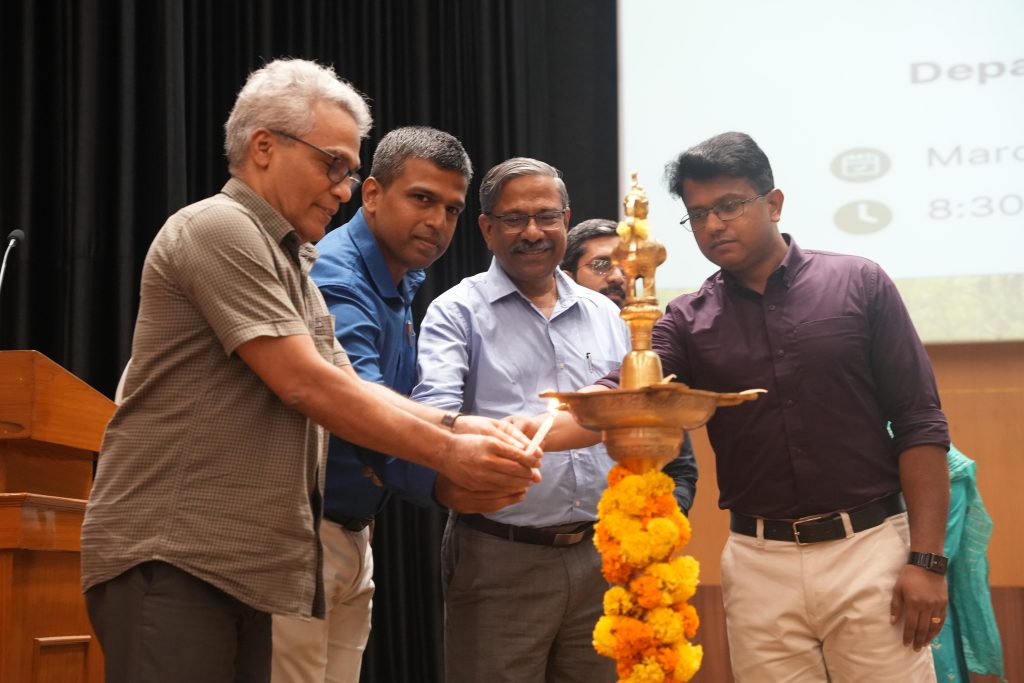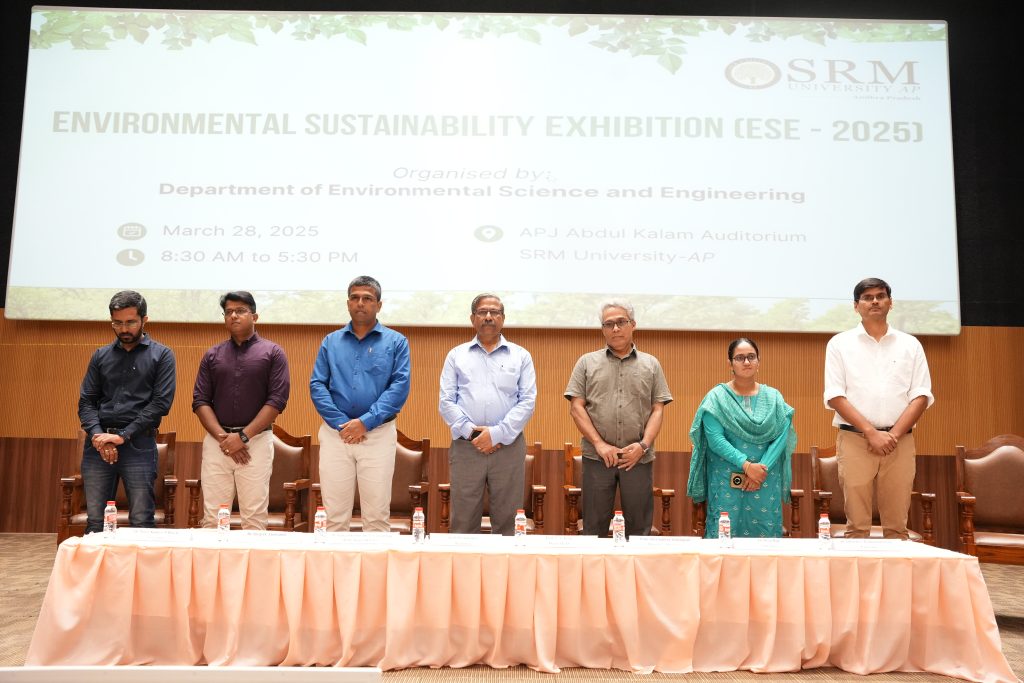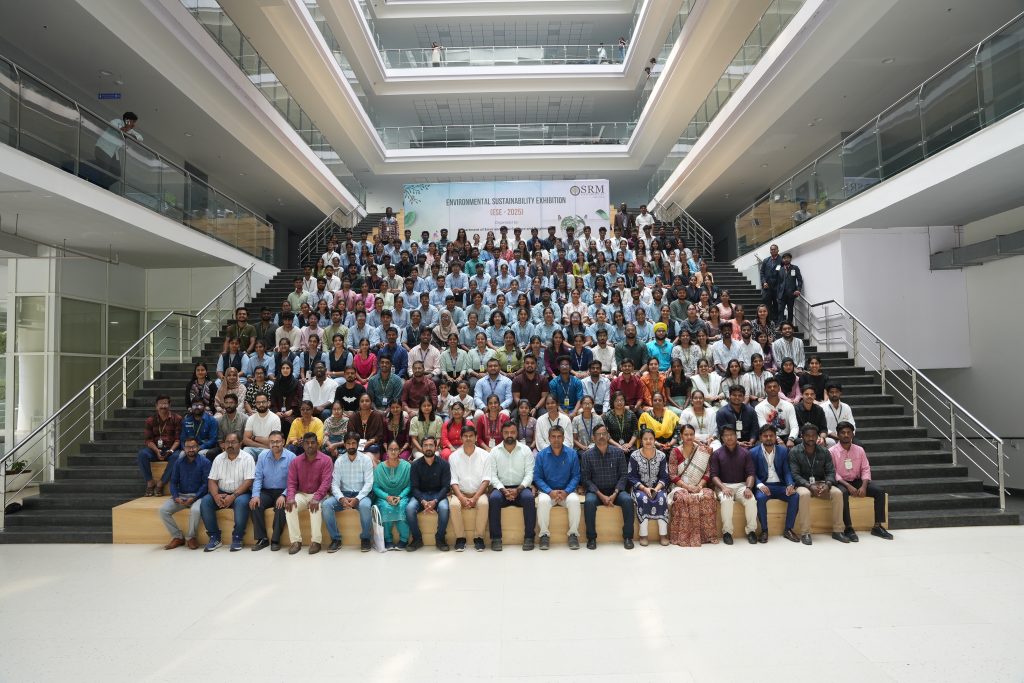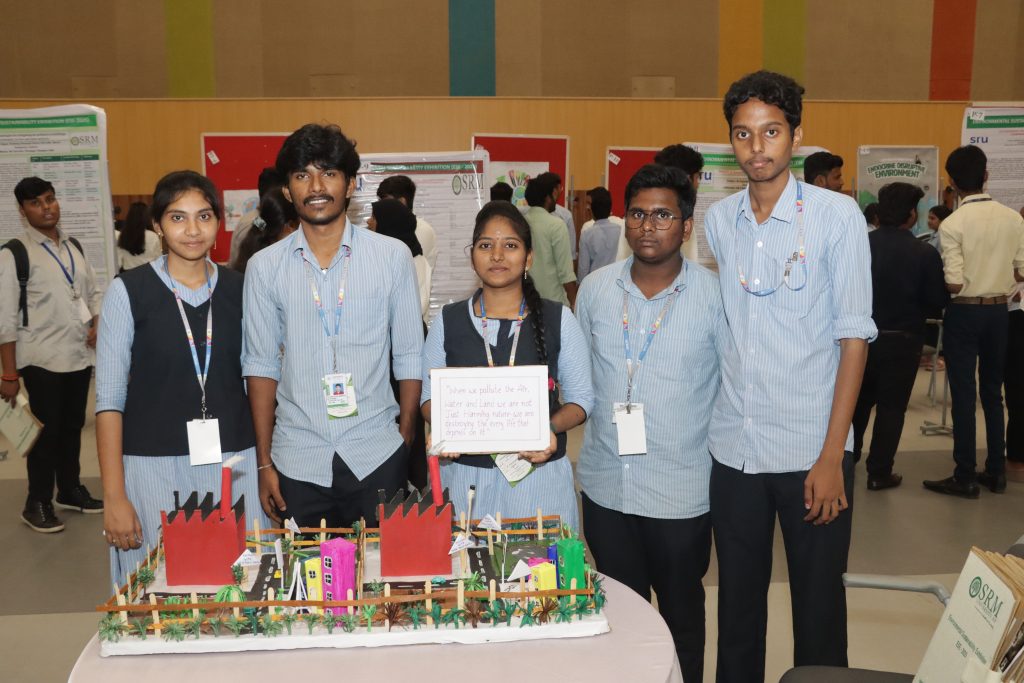Current Happenings ENVS News
- Myco-remediation Strategies: Green Solution to Soil Pollution March 31, 2025
Dr Debajyoti Kundu, Assistant Professor at the Department of Environmental Science and Engineering in his research paper, Pharmaceuticals and Personal Care Products in Soil: Sources, Impacts and Myco-remediation Strategies, speaks of the innovative solutions to tackle contamination of soil. Dr Kundu’s research focuses on leveraging natural processes of fungi to promote sustainable environmental management.
Abstract:
Bioremediation is a sustainable approach for mitigating pharmaceutical and personal care product (PPCP) contamination in soil. This review highlights mycoremediation as an advanced fungal-based strategy for PPCP degradation. Fungi possess unique enzymatic pathways and metabolic diversity, allowing them to break down persistent pollutants in challenging environmental conditions. The paper discusses key fungal species, enzymatic mechanisms, environmental factors influencing degradation efficiency, and innovative biotechnological approaches such as myco-nanotechnology and enzyme engineering. By integrating these advancements with circular economy principles, this research underscores fungi’s role in sustainable environmental management.
Explanation in layperson’s terms:
Pharmaceuticals and personal care products (PPCPs), such as medicines, soaps, and cosmetics, often end up in the soil through wastewater and agricultural runoff. These chemicals persist in the environment, harming ecosystems and potentially entering our food supply. Our research explores how fungi, nature’s recyclers, can help clean up these pollutants. Certain fungi produce special enzymes that break down harmful substances into harmless compounds. By harnessing this natural process, we propose eco-friendly solutions to reduce pollution and protect soil and water quality for future generations.
Practical and Social Implications:
Mycoremediation offers a sustainable, cost-effective solution for removing PPCPs from soil, protecting water quality, and reducing human exposure to contaminants. By preventing pollutant uptake in crops, it enhances food safety and supports sustainable agriculture. This research also informs policies on wastewater treatment and pollution control, promoting eco-friendly remediation technologies for environmental and public health protection.
Collaborations:
This research is a collaborative effort involving experts from:
- Voice of Environment (VoE), Guwahati, Assam
- University of North Bengal, Darjeeling, West Bengal
- RCC Institute of Information Technology, Kolkata
- Sukanta Mahavidyalaya, University of North Bengal, Dhupguri, West Bengal
- SPMR College of Commerce, Jammu
- SRM University-AP, Andhra Pradesh
- CSIR – National Environmental Engineering Research Institute (CSIR-NEERI), Nagpur, India
Future Research Plans:
Future research will focus on scaling up my coremediation for field applications, optimizing fungal enzyme efficiency through enzyme engineering, and exploring microbial consortia for enhanced pollutant degradation. Myco-nanotechnology will be further developed to improve fungal stability and reusability. Additionally, studies will assess long-term soil health impacts and support policy frameworks for integrating fungal bioremediation into wastewater treatment and agricultural practices.
Continue reading → - ESE 2025: Inspiring Innovations March 29, 2025
 The Department of Environmental Science and Engineering in collaboration with the Directorate of Admissions have jointly organised the second edition of the Environmental Sustainability Exhibition 2025. Registrar, Dr R Premkumar declared the Environmental Sustainability Exhibition open; Deans-SEAS, Prof. C V Tomy along with Head of the Department of Environmental Science and Engineering, Dr Rangabhashiyam Selvasembian, Programme Convenors, other members of the faculty, staff and students bore witness to this noble cause.
The Department of Environmental Science and Engineering in collaboration with the Directorate of Admissions have jointly organised the second edition of the Environmental Sustainability Exhibition 2025. Registrar, Dr R Premkumar declared the Environmental Sustainability Exhibition open; Deans-SEAS, Prof. C V Tomy along with Head of the Department of Environmental Science and Engineering, Dr Rangabhashiyam Selvasembian, Programme Convenors, other members of the faculty, staff and students bore witness to this noble cause.The event brought together 207 participants from prestigious colleges and universities across 11 states to address a shared mission of ensuring a safe and sustainable future. The exhibition featured over 50+ exhibits from students representing institutions such as the College of Forestry at Kerala Agricultural University; Singhaniya University, Rajasthan; Lovely Professional University, Punjab, Doon Global University, Dehradun; SR University, Warangal, Vignan University, Vadlamudi and Andhra Loyola College, Andhra Pradesh among others.
The event also featured poster presentations, hands-on training, campus and laboratory visits along with the exhibition. The exhibition also featured an exciting prize pool worth Rs 20,000, Rs 15,000 and Rs 10,000 for the first three winners. The team from Doon Global University, Dehradun; Vignan University, Vadlamudi, Andhra Pradesh and; SR University Warangal, Telangana bagged the first, second and third prize respectively.
Prof. C V Tomy, Dean of the School of Engineering and Sciences, remarked, “What you can save today would be your deposit for tomorrow.” He went on to emphasise the importance of making sustainable choices and encouraged the students to cultivate a sustainable mindset. Associate Professor and Head, Department of Environmental Science and Engineering, Dr Rangabhasiyam in his address stated, “ESE-2025 serves as an exceptional platform for students across the country to present innovative ideas and initiatives for building a sustainable future.” He added, the exhibition motivates the students to showcase their products, learn from experts and contribute to the ongoing sustainability.
Programme convenor, Dr Shoji D Thottathil highlighted the objective of the Exhibition. He stated that, “An exhibition of this calibre is an avenue for people to discuss solutions to environmental problems. Exhibitions such as these transform ideas into innovations.” He emphasised that sustainability is interdisciplinary and requires collaboration among diverse minds.
ESE 2025 served as a call to action asking society to rethink their approach towards environmental challenges in sustainable development.
Continue reading →




